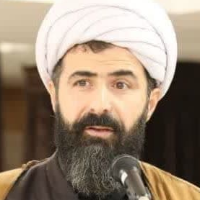The Jurisprudential Analysis of the Role of the Holy Mosque in Performing Ṭawāf Prayer
One of the issues raised about Hajj is how to determine the place of performing the obligatory or recommended ṭawāf prayer and the role of the Holy Mosque in this process. Although it seems that ṭawāf prayer should be performed inside Masjid al-Haram; assuming that the station of Ibrahim (Maqām Ibrāhīm) is moved from the current location to the developed area or outside of Masjid al-Haram (e.g., to al-Masa'a or Shi'b Abi Talib), the capacity of Masjid al-Haram for performing ṭawāf prayer, especially behind or next to the station of Ibrahim, is one of the issues whose rules are not very clear because no comprehensive and integrated research has been done in this field. Relying on the analysis of jurisprudential sources, the necessity of performing the obligatory ṭawāf prayer behind the station of Ibrahim indicates that if the station of Ibrahim is transferred from the current place in the Holy Mosque to the developed area or out of it (to al-Masa'a or Shi'b Abi Talib), the prayer must be performed behind or next to the station. This research seeks to recognize the limits and areas of the evidence and jurisprudential explanations about the role of the Holy Mosque in performing ṭawāf prayer. Achieving this goal was possible by describing and analyzing the jurisprudential propositions by collecting library data, the result of which was that Masjid al-Haram does not play any role in determining the place of performing the obligatory ṭawāf prayer in the aforementioned case.
-
A Comparative Analysis of the Foundations of Trustworthiness of "Yasin Dhirir" and the Evaluation of His Narrative Legacy from the Perspective of Imami Scholars
*, Reza Mirzaei
Comparative Hadith Sciences Research Journal,



